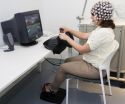(Press-News.org) Over the last few years, we've seen increasing dissent among liberals and conservatives on important issues such as gun control, health care and same-sex marriage. Both sides often have a difficult time reconciling their own views with their opposition, and many times it appears that liberals are unable to band together under a unifying platform. Why do conservatives appear to have an affinity for obeying leadership? And why do conservatives perceive greater consensus among politically like-minded others? Two studies publishing in Personality and Social Psychology Bulletin shed light on these questions.
Loyalty to leadership
Historically, conservatives are viewed as being more obedient and more respectful of leadership. Whereas, liberals tend to be associated with protests and blatant acts of rebellion. Previous research has seemed to suggest that the act of obedience is divisive, and that this cultural war among liberals and conservatives may stem from the fact that obedience elicits different emotional responses. Researchers at the University of Winnipeg delved further into this perception of obedience to authority with three studies, and found that liberals and conservatives are more similar than they may appear.
Lead researcher Jeremy Frimer explains that "beneath the surface of some of these ideological debates is a fundamental need to belong to a group that has a strong leader. Both sides feel the need. And both sides believe that people should do as their leader tells them to do. The difference between the groups is not whether they value obedience to authority. Rather, the difference is about which authority they think is worthy of obedience."
In surveying participants, the researchers found that the act of obedience itself elicits similar moral sentiments from both conservatives and liberals; the differences sparked only when participants perceived the authorities to advance a political agenda. Testing the participants perceptions proved trickier than expected, because the researchers found that the concepts of authority and obedience automatically elicit thoughts of a conservative authority. This finding may explain why obedience to authority appears to be a concept conservatives favor over liberals. Once researchers were able to move beyond the cognitive baggage of the term 'authority' in the first two studies, the third and final study illustrates that liberals and conservatives do value obedience equally. Authorities with a conservative agenda, such as religious leaders and commanding military officers, elicit a positive moral response from participants who are politically conservative. Authorities with liberal agendas, such as environmentalists and civil rights activists, elicited positive moral sentiment from liberal participants. Neutral leaders, like office managers and janitors, were equally positive for both liberals and conservatives. Obedience itself is not ideologically divisive, but rather depends on how similar the authority is in their viewpoints and opinions, and conservatives will call for rebellion when the authorities are from the 'other team.'
Agreement and consensus
Researchers at New York University and the University of Toronto explored the concept that conservatives desire to share reality more strongly than liberals. The perception of in-group consensus can help mobilize group members toward collective efforts and a stronger intention to vote in a particular election.
"Individuals can attain a sense of shared reality through perceiving that other people hold similar beliefs as they personally do," lead researcher Chadly Stern explains. "For example, we found that conservatives, more than liberals, perceived that politically like-minded others made similar judgments concerning whether a target person was born in November or December, simply based on seeing a picture of the person. Even though this judgment was devoid of political meaning, conservatives' perceptions of similarity were associated with the feeling that they "shared reality" with other conservatives."
The findings suggest that perceiving consensus on non-political judgments, like guessing someone's birth month, has implications for outcomes that are politically meaningful. Liberals appear to be more motivated to perceive their beliefs as relatively unique, which can undermine the development of a cohesive movement. A stronger desire for shared reality among conservatives may be why the Tea Party gained more momentum than the Occupy Wall Street movement.
INFORMATION:
Please email press@spsp.org if you would like a copy of the original study in Personality and Social Psychology Bulletin. Frimer, J.A., Gaucher, D., Schaefer, N.K. (2014). Political Conservatives' Affinity for Obedience to Authority is Loyal, Not Blind. Personality and Social Psychology Bulletin, 40(9). Stern, C., West, T.V., Jost, J.T., Rule, N.O. (2014). "Ditto Heads": Do Conservatives Perceive Greater Consensus Within their Ranks than Liberals? Personality and Social Psychology Bulletin, 40(9). Personality and Social Psychology Bulletin (PSPB), published monthly, is an official journal of the Society of Personality and Social Psychology (SPSP). SPSP promotes scientific research that explores how people think, behave, feel, and interact. The Society is the largest organization of social and personality psychologists in the world. Follow us on Twitter, @SPSPnews and find us at facebook.com/SPSP.org
Are conservatives more obedient and agreeable than their liberal counterparts?
2014-06-27
ELSE PRESS RELEASES FROM THIS DATE:
Extinct undersea volcanoes squashed under Earth's crust cause tsunami earthquakes, according to new research
2014-06-27
New research has revealed the causes and warning signs of rare tsunami earthquakes, which may lead to improved detection measures.
Tsunami earthquakes happen at relatively shallow depths in the ocean and are small in terms of their magnitude. However, they create very large tsunamis, with some earthquakes that only measure 5.6 on the Richter scale generating waves that reach up to ten metres when they hit the shore.
A global network of seismometers enables researchers to detect even the smallest earthquakes. However, the challenge has been to determine which small ...
Climate change and the ecology of fear
2014-06-27
Climate change is predicted to have major impacts on the many species that call our rocky shorelines home. Indeed, species living in these intertidal habitats, which spend half their day exposed to air and the other half submerged by water, may be subjected to a double whammy as both air and water temperatures rise. Given the reliance of human society on nearshore coastal ecosystems, it is critical that we better understand how climate change will affect them.
In a recent study published in Global Change Biology, Northeastern University professor Geoffrey C. Trussell, ...
New report evaluates progress of comprehensive everglades restoration plan
2014-06-27
WASHINGTON – Although planning for Everglades restoration projects has advanced considerably over the past two years, financial, procedural, and policy constraints have impeded project implementation, says a new congressionally mandated report from the National Research Council. Timely authorization, adequate funding levels, and creative policy and implementation strategies are needed to achieve restoration benefits and to expedite implementation of the Central Everglades Planning Project. Climate change and the invasion of nonnative plant and animal species further challenge ...
USAMRIID research sheds light on how deadly lassa virus infects cells
2014-06-27
Scientists have discovered that the Lassa virus, which is endemic to West Africa, uses an unexpected two-step process to enter cells. The results, published in today's edition of the journal Science, suggest that the mechanism by which Lassa virus causes infection is more complicated than previously known.
An international team of scientists from the Netherlands Cancer Institute, Harvard Medical School, the University of Kiel in Germany, and the U.S. Army Medical Research Institute of Infectious Diseases (USAMRIID) collaborated on the study, which could lead to new approaches ...
AJMC publishes results showing big data analytics can predict risk of metabolic syndrome
2014-06-27
CAMBRIDGE, Mass. and HARTFORD, Conn. – June 27, 2014 – Research published today in the American Journal of Managed Care demonstrates that analysis of patient records using state-of-the-art data analytics can predict future risk of metabolic syndrome. More than a third of the U.S. population has metabolic syndrome, a condition that can lead to chronic heart disease, stroke and diabetes. These conditions combine to account for almost 20 percent of overall health care costs in the U.S. The study was conducted by Aetna (NYSE: AET) and GNS Healthcare Inc. (GNS), a leading provider ...
Prevention incentives
2014-06-27
A spoonful of sugar helps the medicine go down—and so do movie tickets, cell phone minutes and discounts on airline flights.
A private South African health plan increased patient use of preventive care such as mammograms and influenza vaccine with a program that incentivized healthy behavior using discounts on retail goods and travel. The study, which was led by researchers at Harvard Medical School and the RAND Corporation, was published today in The American Journal of Managed Care.
"Even though most people know that preventive care is important, too few people take ...
Extinct undersea volcanoes squashed under Earth's crust cause tsunami earthquakes, according to new
2014-06-27
New research has revealed the causes and warning signs of rare tsunami earthquakes, which may lead to improved detection measures.
Tsunami earthquakes happen at relatively shallow depths in the ocean and are small in terms of their magnitude. However, they create very large tsunamis, with some earthquakes that only measure 5.6 on the Richter scale generating waves that reach up to ten metres when they hit the shore.
A global network of seismometers enables researchers to detect even the smallest earthquakes. However, the challenge has been to determine which small ...
A study warns of the risk entailed when night owls -- 'evening-type' people -- drive early in the morning
2014-06-27
Researchers from the University of Granada have shown that individual chronotype—that is, whether you are a "morning-type" or an "evening-type", depending on the time of day when your physiological functions are more active—markedly influences driving performance.
In fact, evening-types are much worse drivers—they pay less attention—at their "non-optimal" time of day (early in the morning) by comparison with their optimal time (during the evening). However, in this experiment morning-types were more stable drivers than evening-types and drove relatively well both in the ...
Colon cancer survivors are more likely to have pain in the back and abdomen
2014-06-27
Researchers from the University of Granada have discovered that colon cancer survivors are more likely to suffer future lesions related with pain in the back and lower abdomen than healthy individuals of the same gender and age.
These patients present a series of abnormalities in the abdominal wall architecture—the site of surgery in oncological treatment. Moreover, they have specific abnormalities in processing chronic pain that may increase their sensitization to any kind of pain in the future.
In two articles published in Pain Medicine and the European Journal of ...
'Big data' technique improves monitoring of kidney transplant patients
2014-06-27
A new data analysis technique radically improves monitoring of kidney patients, according to a University of Leeds-led study, and could lead to profound changes in the way we understand our health.
The research, published in the journal PLoS Computational Biology, provides a way of making sense out of the huge number of clues about a kidney transplant patient's prognosis contained in their blood.
By applying sophisticated "big data" analysis to the samples, scientists were able to crunch hundreds of thousands of variables into a single parameter indicating how a kidney ...


